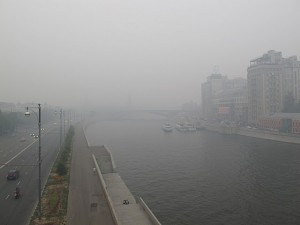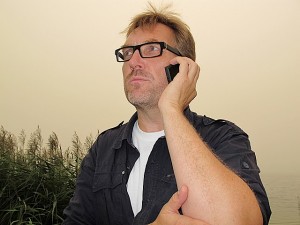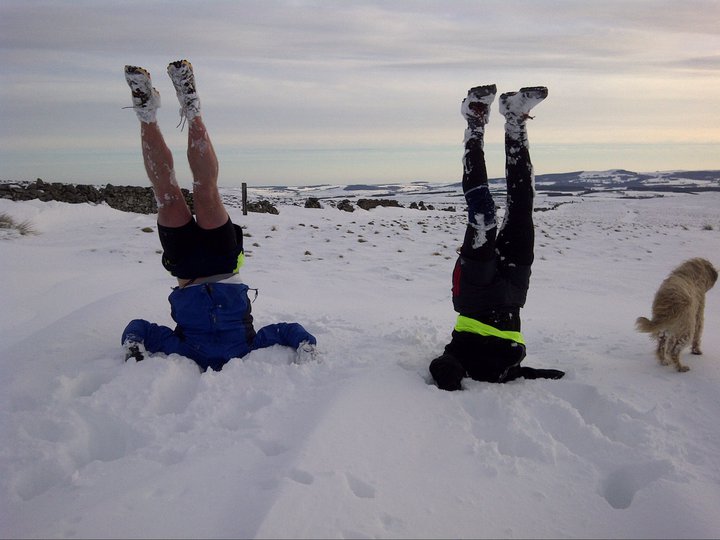The Russian wildfires
by
Per Enerud
Lets blame Hollywood. Most of us connect the Apocalypse with NOISE. Wars or meteorites falling, cities falling into the abyss. People running about, screaming. Moscow last summer offered an alternative to the noisy Hollywood Apocalypse – the silent one.
If you ever been to Moscow, you know that noise is the normal way of life. A chronic traffic breakdown, crowded metro-stations and shopping malls. A fascinating, extremely urban, pulsating place – hey, I go there on my holidays, filling up my lungs with Diesel fumes to endure the freshness of Scandinavia during the rest of the year.
But Moscow this year was silent. Covered for weeks with dense smog from forest fires that never seemed to stop. Similar to the Hollywood picture of the Apocalypse, we connect panic with noise. ”We’re all gonna DIE!!!!!”. But the silent Moscow Apocalypse provoked silent panic. No screaming, no noise, no commotion. People were reportedly silently dying at home from asphyxia sealing windows and ventilation systems to secure themselves from the smog. The Moscow streets were basically empty – anyone who could had left the town. Only the dead poor and the journos stayed. Personally – I am a journo and was asked to produce a few news item on what was going on. So me and the cameraman went deep into the heart of darkness, to see how people were coping in the towns, threatened by the fires.
So we went to Pavlovsky Posad, a small town, 10 miles, 60 km South-East of Moscow, and suddenly we found ourselves in the beginning of Dante’s Inferno:
Midway upon the journey of our life
I found myself within a forest dark,
For the straightforward pathway had been lost.

Just outside the town we passed a small lake, were a few people actually were swimming, like doomed souls in the Styx, and inside the actual town – a chubby Lenin loomed over the central square, reaching out for a small, hot sun that really seemed to darken the day. And everything covered with silence.
Apart from the popular silence, the fires were followed with an official silence. The Russian authorities swiftly switched into Soviet mode and all news shows began with the words – “Half of the forest fires in European Russia has now been extinguished”.
One could say that the fires had deep political repercussions. The people’s trust in the authorities dropped into record low levels, and several bloggers blamed the authorities in failing to create a functioning national emergency service. Aging trucks and poorly maintained equipment, lack of leadership – neo-stalinists blamed the democracy, conspiracy theorist blamed anyone they figured suitable as a scape-goat. The forest fires ignited the Russian blogosphere into a fire storm of blame game.
But what makes Russia worth visiting, is the fighting spirit of the Russians. Overcoming hardship is a national sport in Russia. Everyone invented air filters, air conditioners, posh offices with A/C volunteered to accommodate senior citizens our homeless people who needed to flee the smog and the heat. If the Russian state failed to fight the fires, Russian community spirit succeeded to help the needing.
And after fifty days of heat wave, the rain arrived and the wild fire ceased. The silent apocalypse was over, and the noisy normality returned.

Short CV: Per was the correspondent for SVT in Moscow from 1996 until 2007. He works as a free lance journalist today. His blog -in Swedish- can be read with great joy at http://www.korrespondentmedia.se/prat/index.html

One comment